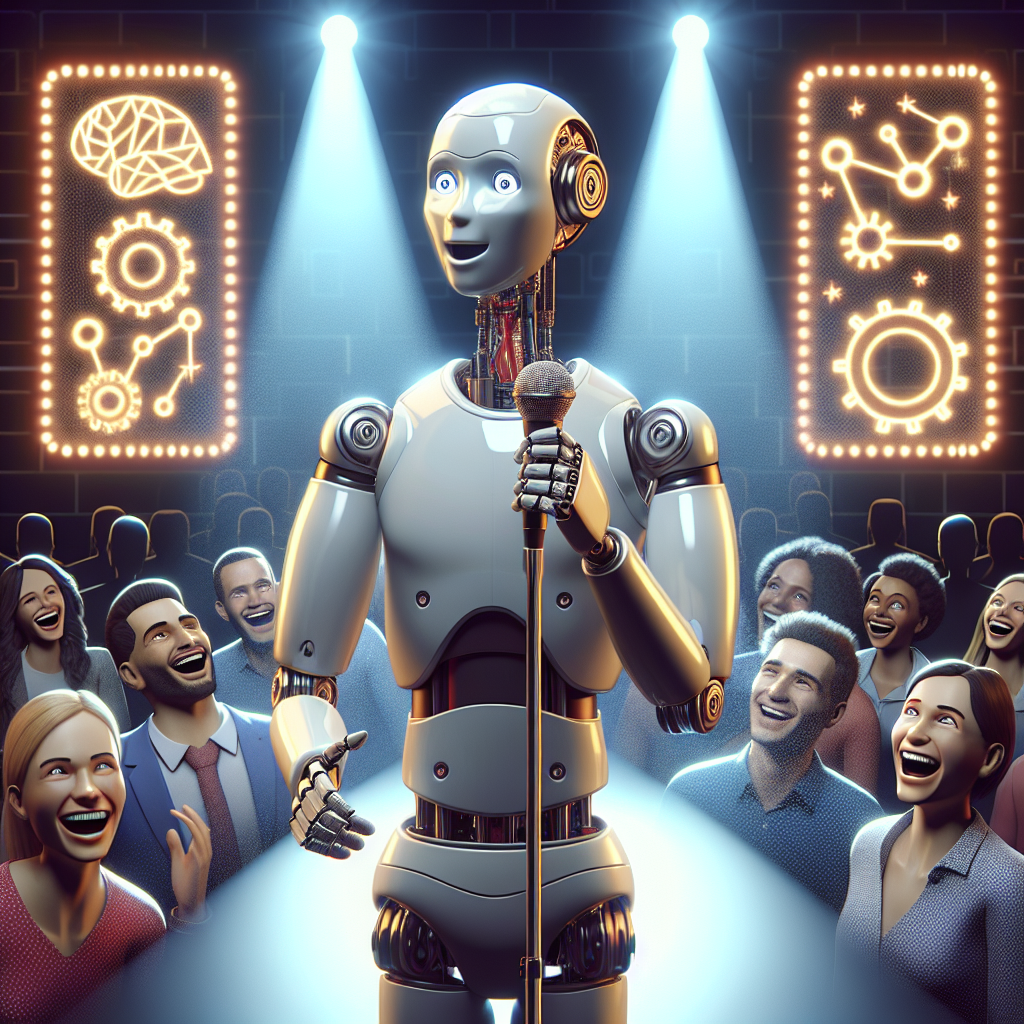Comedy has always been a uniquely human art form, relying on wit, timing, and emotion to elicit laughter from audiences. But as technology continues to advance and shape our world in new and unexpected ways, it’s no surprise that artificial intelligence (AI) is now making its way into the world of comedy.
AI has already begun to influence various aspects of our lives, from personalized recommendations on streaming services to self-driving cars. And now, AI is being used to explore the world of comedy, with some fascinating and sometimes controversial results.
In this article, we’ll explore how AI is shaping the future of stand-up comedy, the challenges and opportunities it presents, and what it means for the future of this beloved art form.
The Rise of AI in Comedy
AI in comedy is still a relatively new and experimental field, but it’s already making waves in the industry. One of the most well-known examples of AI in comedy is the use of chatbots to create jokes and engage with audiences. These chatbots are programmed to generate jokes based on specific parameters, such as topic, style, or audience feedback.
One of the most famous examples of an AI chatbot in comedy is Microsoft’s Xiaoice, a chatbot that has been used in China to create jokes and engage with audiences. Xiaoice has been programmed to analyze conversations and generate humorous responses, with varying degrees of success.
In the world of stand-up comedy, AI is also being used to help comedians generate new material and refine their performances. One example of this is the use of AI algorithms to analyze audience reactions and feedback in real-time, allowing comedians to adjust their delivery and material on the fly.
Another exciting development in AI comedy is the use of deep learning algorithms to generate jokes and comedic material. These algorithms are trained on vast amounts of data, including jokes, scripts, and audience reactions, to create new and original material that mimics the style of human comedians.
Challenges and Opportunities
While AI in comedy presents exciting opportunities for innovation and creativity, it also raises some challenges and ethical questions. One of the main concerns with AI in comedy is the potential for jokes to be generated without the emotional depth and nuance that human comedians bring to their performances.
Comedy is a deeply personal and subjective art form, and it’s often the vulnerability and authenticity of comedians that make their performances so compelling. AI, by its very nature, lacks the emotional intelligence and lived experience that human comedians bring to their work, raising questions about the authenticity and relatability of AI-generated comedy.
There are also concerns about the potential for AI in comedy to perpetuate harmful stereotypes and biases. AI algorithms are only as good as the data they are trained on, and if that data contains biases or stereotypes, those biases can be reflected in the jokes and material generated by the AI.
Despite these challenges, AI in comedy also presents exciting opportunities for innovation and experimentation. AI algorithms can help comedians generate new material, refine their performances, and engage with audiences in new and unexpected ways.
FAQs
Q: Can AI replace human comedians?
A: While AI can generate jokes and material, it lacks the emotional depth and authenticity that human comedians bring to their performances. AI can be a helpful tool for comedians to generate new material and engage with audiences, but it’s unlikely to completely replace the human element of comedy.
Q: How are audiences responding to AI in comedy?
A: Audience reactions to AI in comedy are mixed. Some audiences appreciate the novelty and innovation of AI-generated material, while others prefer the authenticity and relatability of human comedians. Ultimately, the success of AI in comedy will depend on how well it can connect with audiences and elicit genuine laughter.
Q: What are some examples of AI in comedy?
A: Some examples of AI in comedy include chatbots like Microsoft’s Xiaoice, which generate jokes and engage with audiences, and deep learning algorithms that generate new material in the style of human comedians. These tools are still in the early stages of development, but they show promise for the future of comedy.
In conclusion, AI is already beginning to shape the future of stand-up comedy, with exciting developments in chatbots, deep learning algorithms, and real-time audience feedback. While AI in comedy presents challenges and ethical questions, it also offers opportunities for innovation and creativity that could help push the boundaries of this beloved art form. As AI continues to evolve and improve, it will be fascinating to see how it influences the world of comedy and what new possibilities it brings to the stage.

